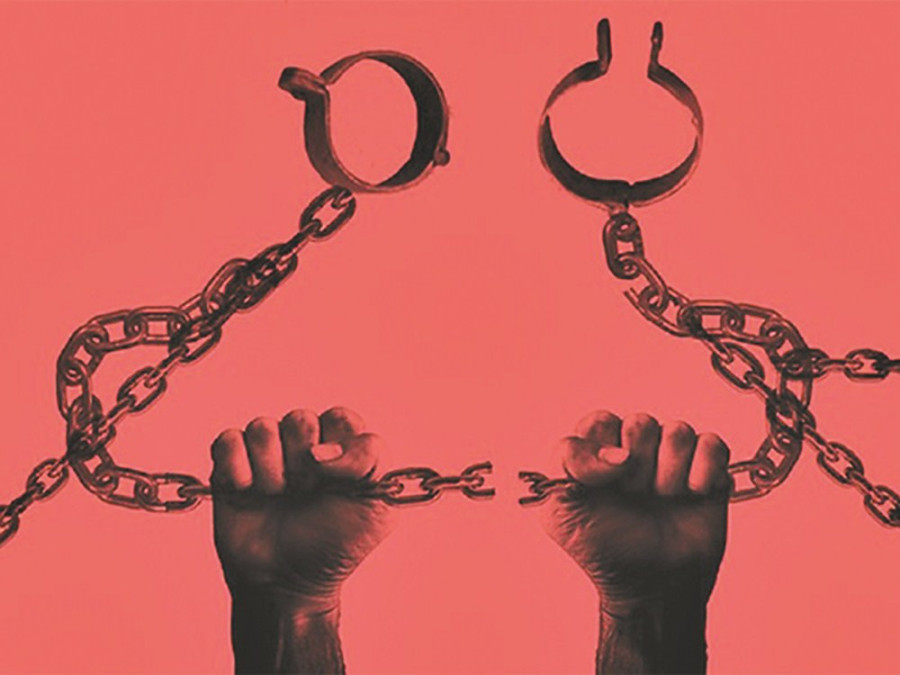Opinion
Saying sorry
The apology campaign has the potential to begin a movement to transform Nepal’s social landscape
Avinash Gupta
The 2014 Nepal Human Development Report puts Dalits (from the hills as well as the Tarai) at the bottom of the human development index based on elements of wellbeing such as education, health and income. Right from the times of the Muluki Ain to the present, discrimination based on caste is inherently rooted among the Hindus in Nepal. Caste-based occupational divisions and practices like untouchability are almost certainly one of the most morally despicable practices that have put the ‘proud’ civilisation to shame. In India too, Gau rakshaks or protectors of the holy cow, a ‘criminal gang’ in religious robes, have inflicted atrocities on Dalit workers, causing a major uproar.
Healing wounds
In our own context, the apology campaign in the Tarai has been continuing where ‘upper caste elites’ are apologising to their Dalit counterparts for historical injustices. Almost 14 percent of the country's population are Dalits, according to the 2011 census. While political awareness and activities are on the rise in the Tarai, there have been few social movements, especially in ending caste-based discrimination and untouchability. Few would deny that political and religious processes have historically handicapped fellow humans. When I heard about the apology campaign, I wondered if it would make a tangible difference in the lives of people who, for hundreds of years, have lived in ghettos and taken up occupations which are at best ignominious. I had several discussions on this issue and after hearing many arguments from peers and a lot of thinking, I believe that if done in earnest, such campaigns have the potential to at least mark a beginning of a movement to transform the country’s social landscape.
The apology campaign should be broadened to garner greater support. Religious, political and other institutions in the Tarai should include Dalits, particularly Dalit women, whenever possible. Despite changing times, slurs and stereotypes against Dalits persist, even among the so-called sophisticated sections of the population. I remember some of my seniors and peers during my university years telling me that it is easy to identify whether a person is a ‘‘tallo jaat” (lower caste) by their lips, noses and even their complexion. Often, a group of friends would proudly declare that it was an “all-upper-caste” group. I think these group affiliations were deliberately chosen. At work, I would come across a colleague who did not attend the wedding of his “lower” caste friends after the fear of being ostracised by his own community. A few years ago, I read about a riot that had broken out at a shrine in the Far West when Dalits went for worship. In such a context, it is indeed remarkable that some opinion makers involved in the apology campaign are dining in Dalit homes.
Broader social movement
Of course, many readers would be sceptical whether gestures like these are going to translate into tangible improvement in the living standards of the Dalits and their access to social and religious organisations. Economist Douglas North has argued that in developing economies, the dominant coalition excludes other groups and limits access to rents, and social and religious organisations. This is precisely why he calls the developing economies ‘limited-access orders’.
One of the most sensitive issues associated with the Dalits has been reservations or positive discrimination. The Nepal Human Development Report suggests that upper caste groups in the Tarai and hills generally enjoy better human development levels than the national average. The average can indeed be misleading and there are certainly economically deprived classes even among the upper castes. However, the difference lies in proportions. The current reservation mechanism may take into account scientific measures—such as annual income, education of parents, size and geographical location of the dwellings, among others—to ensure that genuinely excluded sections get opportunities. It would be a tragedy if well-off sections enjoy provisions meant for the vulnerable.
I have often been told that those selected on the basis of the quota system are not smart enough. There is some merit in the argument that inclusion through the quota system brings in people with lower scores. Research suggests that people brought in from the quota system have taken a longer time in completing demanding technology programmes in India (some have even failed). I think much of the meritocracy related observations I have heard had more to do with the fact that the quota candidates did not dress well or did not speak and write English in a suave manner. Overall, I believe we need to widen the scope of the apology campaign, which can perhaps lead to a broader social movement against caste-based discrimination.
Gupta is a Chevening scholar at SOAS, University of London (School of Oriental and African Studies)




 20.12°C Kathmandu
20.12°C Kathmandu










